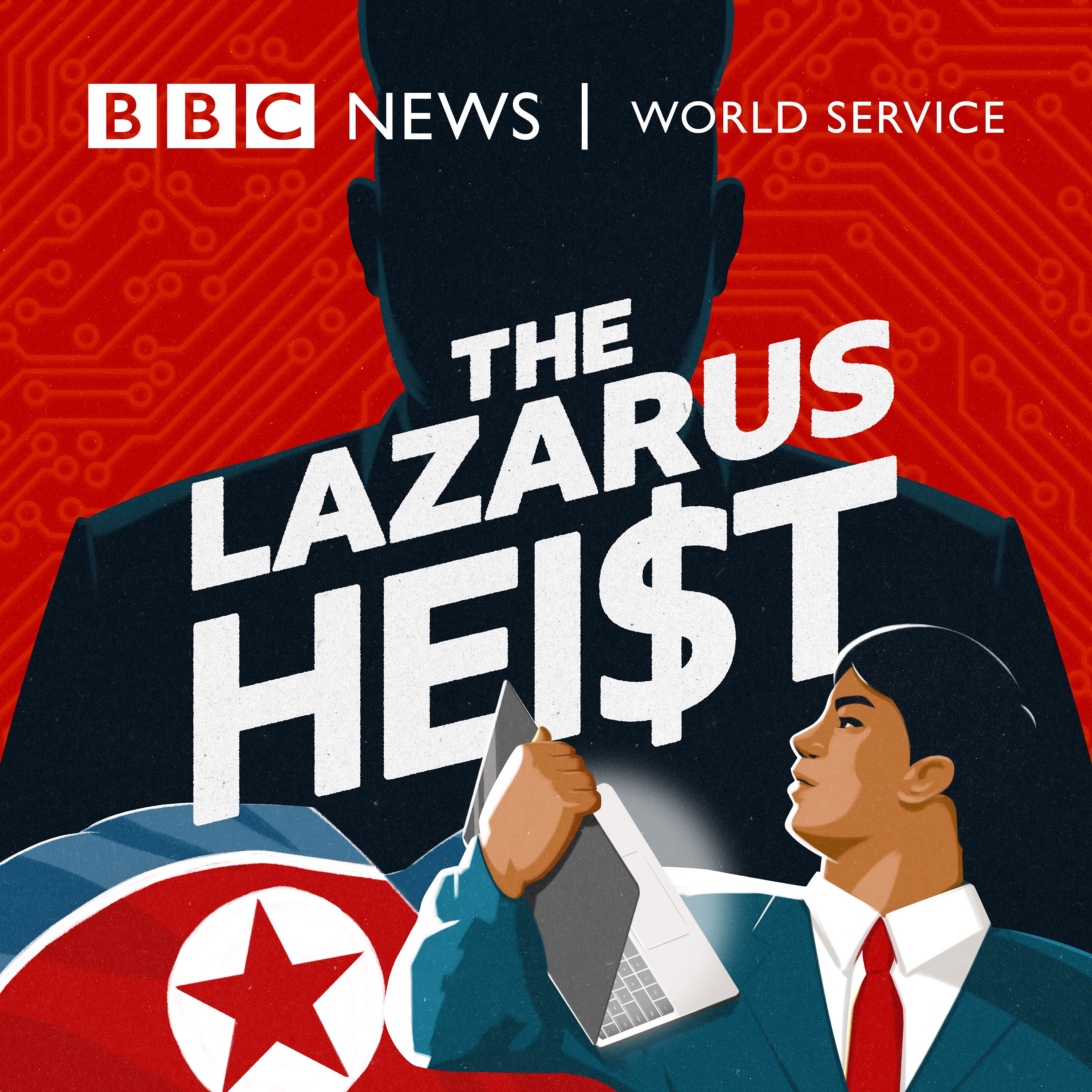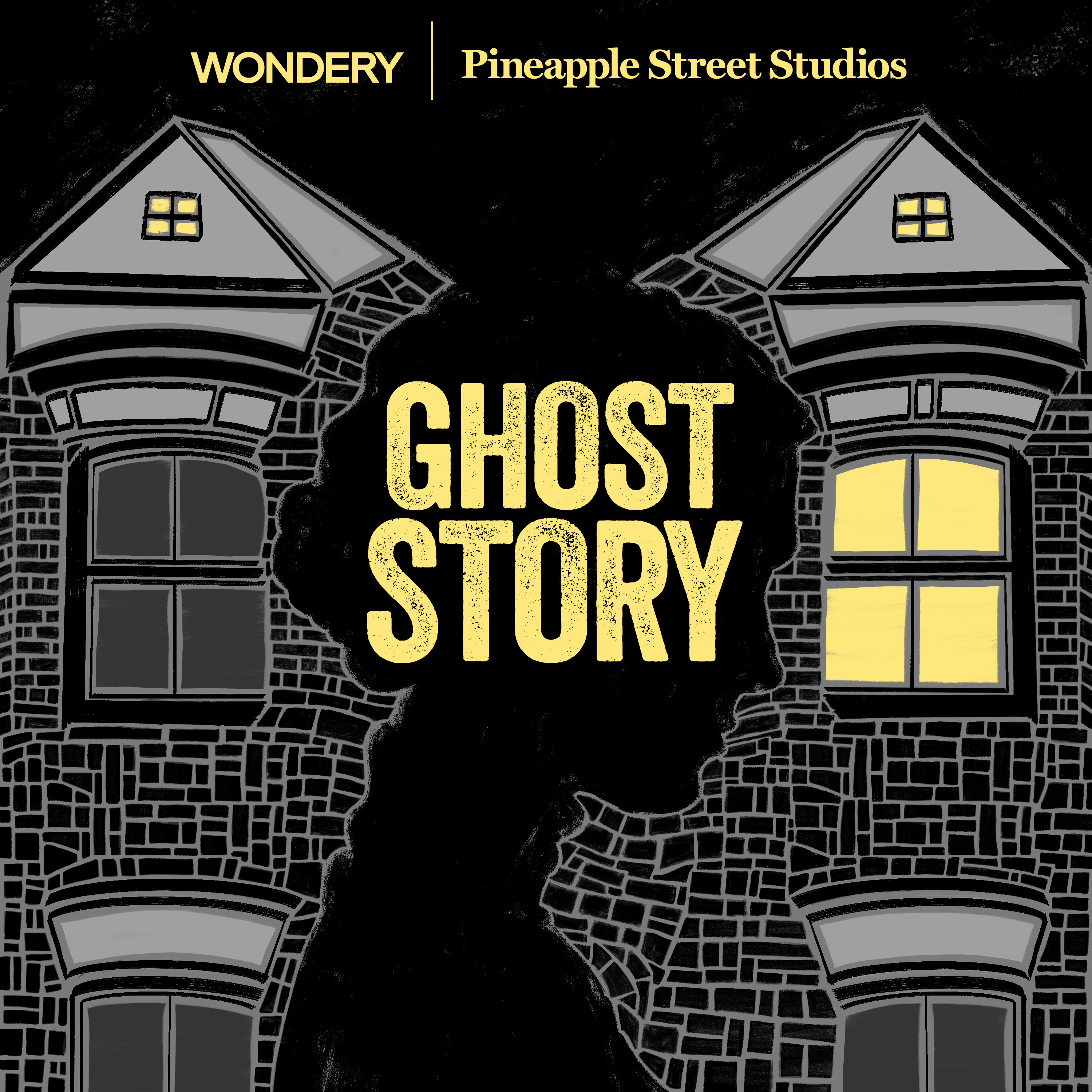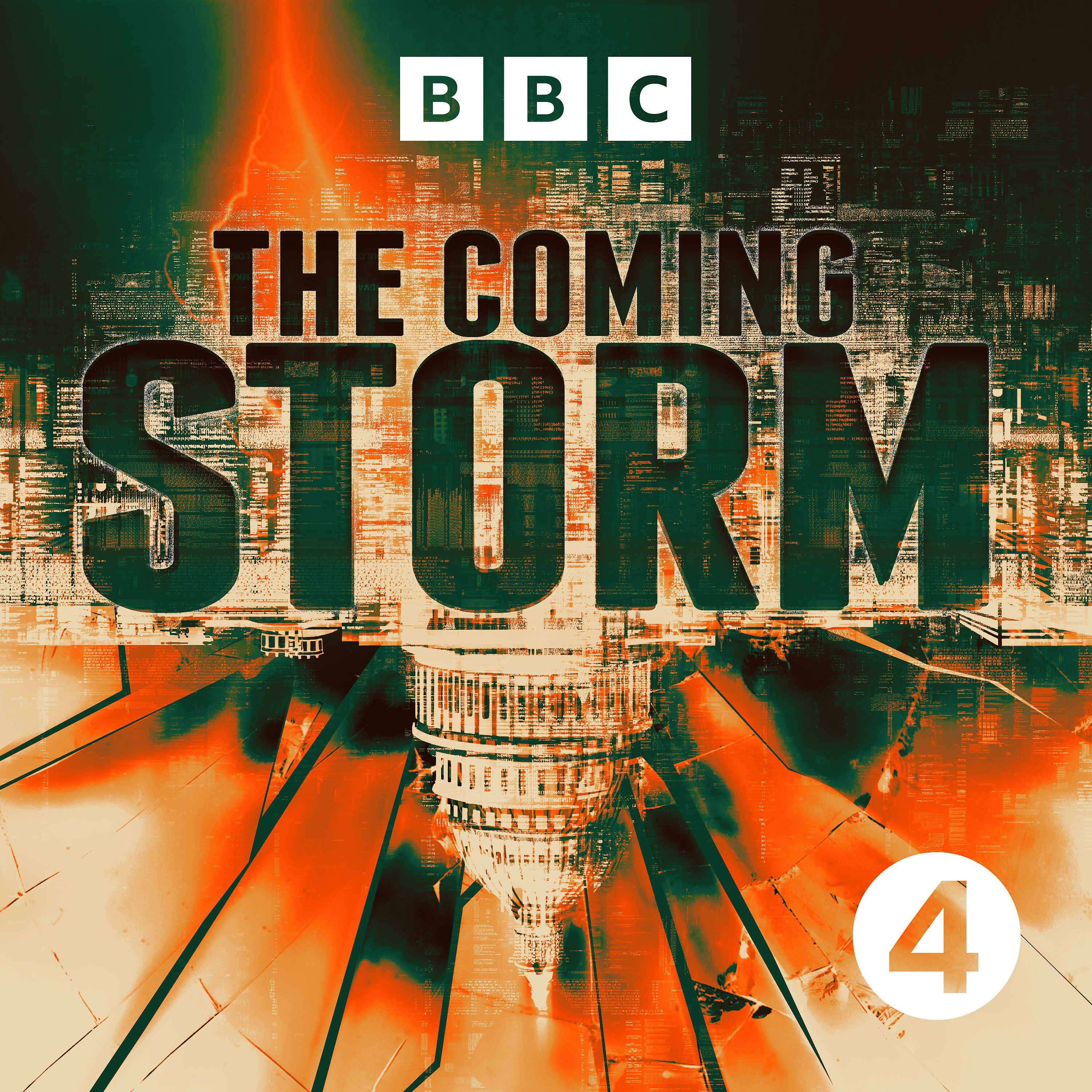
Brian's Run Pod
Welcome to Brian's Run Pod, the podcast where we lace up our running shoes and explore the exhilarating world of running. Whether you're a seasoned marathoner, a casual jogger, or just thinking about taking your first stride, this podcast is your ultimate companion on your running journey.
Join us as we dive deep into the sport of running, covering everything from training tips and race strategies to personal stories and inspiring interviews with runners from all walks of life. Whether you're looking to improve your race times, stay motivated, or simply enjoy the therapeutic rhythm of running, Brian's Run Pod has something for every runner.
Brian's Run Pod
Enhance Your Run with the Power of Music: Boost Efficiency, Joy, and Safety
Music enhances the running experience, boosting performance and enjoyment through improved cadence and reduced perceived exertion. The episode delves into BPM significance, creating tailored playlists, and important safety considerations around running with music.
• Discussion on the connection between running and music
• Benefits of listening to music during runs
• The importance of BPM for enhancing cadence
• Tips for crafting the perfect running playlist
• The emotional and motivational impact of music
• Safety considerations when running with music
Plus, we have a new feature on the podcast you can now send me a message. Yep you heard it right- Brian's Run Pod has become interactive with the audience. If you look at the top of the Episode description tap on "Send us a Text Message". You can tell me what you think of the episode or alternatively what you would like covered. If your lucky I might even read them out on the podcast.
Instagram
So you're thinking about running but not sure how to take the first step. My name is Brian Patterson and I'm here to help. Welcome to Brian's Rompod. Welcome back to Brian's Rompod and it's your host, me, brian Patterson, here chatting about all things running Bit of a look behind the curtain.
Speaker 1:This is the second time I've done this episode, so hopefully it'll go great, great guns today. So anyway, let's carry on with the episode. Let's carry on with the episode. As I record this episode, we're in the middle of a chilly January winter and if you're out and about listening to me, I hope you're cosy and warm. If you're running and listening, I'm sure you'll soon be warming up. Or you could be listening to me and it'd be in the summer. So anyway, it'd be great if you warm. Anyway, I just wanted to share a bit about my own running at the time of time of recording, and it hasn't been the best lately. In the past four months I've only managed to run about two to three times a week. Not ideal, I know, but anyway I did my Strava stats. I downloaded that for the last year, still managed to log for, let's say, 43 hours of activity cover 330 kilometers, which I remember, I think one year I did a thousand kilometers, so about a third of that, but that was quite a few years back and my most active month was August. But now let's, let's make 2025 a much more productive year. Back to the podcast.
Speaker 1:Today we're going to be talking about running and music. It's something many of us do while we're running. I remember when I was running around Hyde Park in the 90s, I'd take my sunny walk when with me, but now I can even access and music. It's something many of us do while we're running. I remember when I was running around Hyde Park in the 90s, I'd take my sunny Walkman with me, but now I can even access thousands of songs on my watch. It's just mind-blowing as to how much technology has changed, and let's not forget that I can even take a call from someone with my watch. So it's just very much like the Jetsons. If you don't know what the Jetsons are, it was an animated sitcom that came out in the early 60s, but I'll leave a link in the show notes so you can have a look at the Wikipedia link about the Jetsons.
Speaker 1:Now let's talk about what we'll cover. Does music help our running? What's BPM? I'll explain about that a little bit later, tips for creating a playlist, what's the power of music and what are the safety concerns. So, without further ado, let's get started.
Speaker 1:So does music help our running? We'll look at a few things here improved running efficiency, reduced perceived exertion, increased motivation, subliminal synchronization, and then I'll kind of make a summary of that. So the improved running efficiency a 2012 study found that runners who listen to music with a tempo of about 170 beats per minute there's the BPM 570 beats per minute, there's the BPM significantly increased their running cadence compared to those who ran without music or with a slower tempo. And this increase in cadence can lead to a more efficient running stride, which may reduce the risk of injury and overall performance. And, as I've talked about in quite a few past episodes about cadence, the increased cadence will help reduce or the evidence is it will help reduce injury and make your running a little bit more efficient. And I suppose it's logic that the faster or the higher the beats per minute or the faster the song, then you are more likely to increase your cadence. Also, it's said that studies have shown reduced perceived exertion. So studies have shown that music can distract from the physical discomfort and pain, which can help in endurance spoils like trail running and marathons. One study in the Journal of Sports and Exercise Physiology found that participants who listened to music during a challenging treadmill task reported lower perceived exertion than those who ran in silence. So I just think it takes your mind off the activity and it makes if it's a song that you really like, then it can sort of detract from sort of the hard work that you're doing or whatever exercise you'd be doing, so you could be running or you know you could be on a bike or you could be rowing or something like that. So but it does help and I know it's helped me over the years.
Speaker 1:Increased motivation music can evoke feelings of happiness, strength and determination, which can help runners push through mental and physical barriers. A study in the journal of applied sport psychology found that runners who choose their own motivational music experience greater, greater endurance enjoyment compared to those who listen to non-motivational music or no music at all. So I know let's say, if you've had a bad day, then maybe just put on your favorite playlist and then go out there and run and you'll get that endorphin rush Plus also you'll be listening to your favourite music. Subliminal synchronisation the brain naturally tends to synchronise footsteps to repetitive beats, including music, and this can help runners maintain a faster pace. So when movement is synchronised to music, the body becomes more energy efficient, which can improve endurance, and I suppose this kind of leads to the first point improved running efficiency.
Speaker 1:So again, I think, as you can see, that the studies have really shown that having music when you're doing running or physical activity can really help. So, in summary, music can be a great way to boost your mood while you run, but it might not be as effective at pushing you to your limits. Studies have shown that if you're running really hard, like above 75% of your aerobic capacity hard, like about above 75% of your aerobic capacity music might not help you feel less tired as much, because your brain is more focused on how tired you are, but it can still make you feel happier and more energised. The best tempo for running music depends on what you're doing. So, let's say, for jogging, a tempo between 120 to 125 beats per minute is usually good. For really hard running, try 140 to 145 beats per minute or even higher, and if you really want to feel more in sync with your own breathing and run faster, aim for 150 to 180 beats per minute. I think we can clearly show there that, as I've said, the evidence is there that having music accompany you while you're running, it is really beneficial.
Speaker 1:So let's look into what is BPM and I did touch on this earlier, which is the beats per minute. Is it related to running cadence? Now we'll look into synchronisation, cadence improvement, efficiency, tempo variation and what are the ideal ranges, ideal BPM ranges. We'll look at individual preference and then again we'll just do a little bit of a summary there. So, synchronisation a brain is inclined to synchronize footsteps, to be a repetitive beat, to include the beat of the music, and this is known as subliminal synchronization.
Speaker 1:When a runner listens to music, they may naturally adjust the cadence to match the BPM, just like we said earlier. The cadence improvement a study showed that runners who listen to music with a tempo of 170 beats per minute significantly increase their running cadence, as I've said before but I've said all the time that improving your cadence is quite a hard thing to do you can get metronomes apps that can help in sort of give you an idea of the type of cadence that you supposedly should be running at, but I would maybe just experiment with the playlist in terms of having that 170 beats per minute, or maybe using one of these apps to help improve your cadence. Having a faster cadence will help with the efficiency. An increase in cadence can lead to a more efficient running stride, which can reduce the risk of injury and improve overall performance. When the movement is synchronized to music, the body may become more energy efficient as well.
Speaker 1:Tempo variation While a consistent tempo can help maintain a steady pace, varying the tempo during different phases of your run can add excitement and challenge. For example, faster paced songs may be used for warm-ups. Moderate tempos are maybe the main part of the run and slower tempos for cool downs. Or you could have a slower tempo for the warm-up as well, and then gradually increasing in pace, but play around with that. So maybe choose a couple of songs in a playlist which will help you ease into your run and help you with your particular warm-up, and then you could either switch to another playlist where you're doing, let's say, the main part of your run.
Speaker 1:What are the ideal BPM ranges Now? According to research, the altempo ranges may vary depending on the type of run. So 120, 125 beats per minute, suitable for jogging, 140, 145 beats per minute, as I've said before, is appropriate for an all-out effort, and 150 to 180 beats per minute is recommended for synchronicity and increased cadence. So, again, just play around with those different types of songs that have those different beats per minute Individual preference, those different types of songs that have those different beats per minute individual preference well, there are. These are recommended vpn ranges. It is really down to you whether you want to to do this, or maybe there may be some really favorite playlists of yours that you'll really find that really works with you when you're going out running. But talking about that, that's a good transition into how can we any practical tips for creating the perfect playlist.
Speaker 1:I'll just go over some of the things. So, like choosing the right tempo vary the tempo, include motivational songs, consider the environment. Use resources to find music Well, I'll have a look at that. Incorporate soundtracks, add fun songs, test your playlist, consider your goals as well and be mindful of the volume, but don't become too reliant as well. So let's have have a look at some of those areas.
Speaker 1:So, choosing the right tempo as I've said before, that you know whatever type of run you'd be going for. Then think about the tempo or the beats per minute associated with that playlist. So if, maybe, if you're going out for a interval run, maybe, do something that is going to be made quite a higher tempo. So if you're going to sort of have a high intensity type of training session, if you're going to go out for, let's say, maybe, a tempo run, it could be let's. I mean, one of my classic tempo runs is that I warm up for a kilometre and then two times 1500, with a minute rest in between, so maybe the beats per minute would be a little bit slower. So try that.
Speaker 1:Include motivational songs, include songs with powerful, inspiring lyrics that have personal meaning or evoke positive emotions, and these tracks can be especially helpful during difficult moments. Consider your environment. Choose movements, music that complements the environment, that keeps you engaged throughout the run. Trail runners might prefer a more varied playlist to match the changing landscapes, while road runners may opt for a more consistent tempo. Use resources to find music. Some websites like JogTunes and apps like Spotify or even the Apple Music have good fitness playlists and have tunes that can help with finding the right bpm, even though you may not like some of the music, but I think you may find that you might, you know, help it may find it will help you with your training.
Speaker 1:Incorporate soundtracks. Um, our movie and television soundtracks can connect with your emotions and make you feel like you're in some kind of sports montage. So you know Eye of the Tiger from the famous movie with Sly Stallone the name escapes me. So or add fun songs. Include songs that make you want to dance and to make easy runs more enjoyable. Test your playlist. There's no better way to know what works and what doesn't work then by setting your own playlist.
Speaker 1:While running, pay attention to how the music affects your pace, mood and overall enjoyment of the run. Consider your goals and if you're going for a longer, more sustained effort, choose music that you can enjoy and it can distract you from the pain and monotony. So, for a harder session, choose something upbeat, uptempo, to help you push that little bit harder. And if you're feeling anxious before a race, use calming music. Now I just remembered the film for either. Tiger is Rocky, that's it. Be mindful of volume, obviously, because if you are running on the roads and you're crossing roads, streets, because if you are running on the roads and you're crossing roads, streets, then just be mindful of the traffic, what's around you, don't become too reliant. It's important to listen to your body's cues and not become overly reliant on the music. Train without music, occasionally, I think it helps vary it. I haven't done that recently, but I think one of these days I might have a go at that and just to vary the training.
Speaker 1:Now our next section is the power of music. The power of music to enhance personal experiences when running is a recurring theme, and here's a breakdown of how music can impact on a running experience. It can invoke memories and emotions. Music is very much like a time machine for runners. It can instantly transport them back to certain moments in their lives, whether they're happy or sad. Certain songs can remind them of specific races, life events or personal experiences, creating a strong emotional connection. So music can make you feel, as I said, happy, strong and determined, which can help you push through the tough times. And let's not forget about the emotional rollercoaster that can happen when you dance to a sad song. It's like a discomfort of a trail run, but with more dancing and less sweat. So, as I said, if you've had a bad day, then why not try going out for a run listening to your favourite playlist, and it can really give you that you know, improve your spirits, motivation and perseverance.
Speaker 1:Music can provide a much-needed motivational boost during difficult moments in the run. The right song at the right time can help a runner push through the mental and physical barriers, and some people use specific songs as motivation, as a reminder to keep them going. The lyrics of a song can inspire a runner to persevere, and songs can also be used to get out of bed in the morning and motivate a workout. A personal connection of music and running Music and running are like two peas in the pod. For some people They've always been inseparable and running is just the perfect way to enjoy their favourite tunes. So for one runner, certain songs are like capsules transporting them back to the highs and lows of their races Music as a marker. I thought this was a good idea and I thought one runner who uses specific song, like All my Friends, to mark a mile during their run and creating an isolated race against time. The song's lyrics also provide an introspective element to the run.
Speaker 1:Over time, songs can absorb bits of a person's life and making years' worth of memories accessible over time. So you can use it instead of using, let's say, a particular training session. Then you can use the song as part of the running, live music and running community. Sometimes at races it can be very impactful. So, for example, at the big sir grand piano man, michael martinez reinvigorates runners with his piano performances. So sometimes they have a big make of music at particular runs and that can really help you get in the mood for doing that particular event. It could be a 5k half marathon marathon. Creating the new playlist is like having new shoes. When I create a new playlist, it's like getting a fresh pair of shoes. I can't wait to put them on and then start running. And if there's anything that I can make the running experience more enjoyable than I'm all for it. In summary, I think music has a real powerful impact in terms of the personal running experience, evoking memories, creating emotional connections, whereas sometimes having shared and communal aspects.
Speaker 1:So what are the safety concerns? Obviously I think we did touch on this earlier on when running with music, it's important to consider safety, hearing and how it impacts on your training, situational awareness. It's important to be aware of your surroundings, to stay safe when running outdoors. So some people use these new headphones called the Bone Conduction headphones and can allow you to listen to music while still being able to hear what's going on around you. Another option is to use only one earbud or you can use the transparency mode on the apple earpods pro. I can't say about any other manufacturer of um if earbuds or earphones, but I'm sure they probably have the same types of features.
Speaker 1:If you're into using, you know, headphones, over-the-ear headphones, just make sure you're well aware of your surroundings and also the traffic that's around you. Hearing Be aware of the volume level of the music to avoid hearing damage. It's possible to slowly increase the volume of your music while exercising without realising that it's become too loud. Hearing damage can be more likely in exercising hard due to the decreased blood flow to the inner ear. Training Be aware that music can affect your ability to listen to your body's cues, listen to your foot strikes, and breathing rate is important for judging your pace. Sometimes races do not allow the use of music, so you should train without music sometimes. So if you're trying to simulate you're going to be doing a 10k race coming up, then try and ditch the headphones and run and simulate that race at that particular race pace that you're looking to achieve. I think in general, it's important to use common sense when running with music and just to be aware of the potential risks involved.
Speaker 1:Now, as a summary of today's episode, music can totally boost your running game, without a doubt. A lot of people I see out there on my way to work and see them running and running with headphones Do you see the odd person who's not running with headphones? And I think that's great. That's fantastic. As we've shown, it can make you run faster, you can make you feel less tired and it can also get you in a good mood if you're not having a good day.
Speaker 1:As I said, stoves have shown that running at a tempo of 170 beats per minute can make you run faster and more efficiently and help improve your cadence. So again, I think that's just something that you just need to experiment with. Try different tempos and genres to see what works best for you. Music can make running so much more fun and it can give you the motivation to push yourself, so make you think of happy memories, even make you feel a little bit emotional. But it's important to be careful and think about safety. You don't want to get hurt or damage your hearing. Also, it's a good idea to take breaks from running with music. Sometimes, as we said, you know, some races don't allow you to listen to music or have headphones in when you're running. Anyway, I hope that's given you some ideas about running with music and I hope you've enjoyed today's show and look forward to talking to you next week.















